20 Best Foods For Your Gut After Antibiotics
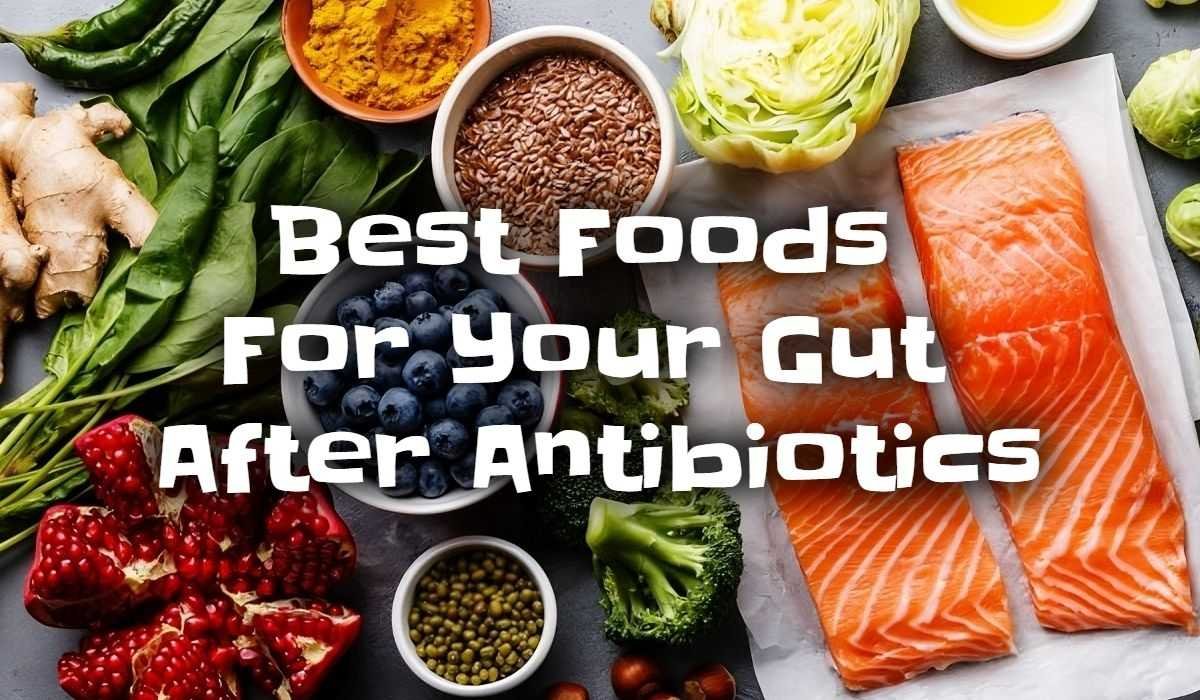
Have you recently taken antibiotics and are now experiencing digestive discomfort or side effects? Antibiotics are essential for fighting bacterial infections, but they can also have negative impacts on your gut microbiota.
The good news is that there are ways to restore your gut health after taking antibiotics, and it starts with the food you eat.
In this article, we will discuss the 20 best foods for your gut after antibiotics. We’ll cover everything from probiotics and fermented foods to high-fiber and prebiotic foods.
You’ll learn about the importance of gut health restoration, how antibiotics affect your gut microbiome, and what common antibiotic side effects to watch out for.
By the end of this article, you’ll have a better understanding of how to take care of your gut health post-antibiotics so that you can feel your best again.
Key Takeaways
- Probiotics can reduce the risk of diarrhea and restore healthy gut bacteria during and after antibiotics.
- Fermented foods like yogurt, cheese, sauerkraut, and kimchi contain healthy bacteria that can restore damage to the gut microbiota.
- High-fiber foods like whole grains, nuts, seeds, beans, fruits, and vegetables can stimulate the growth of healthy gut bacteria.
- Prebiotic foods feed the good bacteria in the gut and can help restore the gut microbiota after antibiotics.
What Are Antibiotics?
Antibiotics are essential for treating bacterial infections, but they can also have negative effects if not taken properly.
They work by killing both harmful and beneficial bacteria, which can lead to imbalances in the gut microbiota and cause side effects like diarrhea and liver damage. [1]
It’s important to take antibiotics when prescribed by your healthcare provider but avoid overusing them.
Overuse can contribute to antibiotic resistance, making it harder to treat bacterial infections effectively in the future. [2]
Therefore, it’s crucial to follow instructions carefully and only take antibiotics when necessary.
What is the gut microbiome?
Imagine your gut as a bustling city, with millions of tiny inhabitants working together to keep you healthy and happy. This community of microorganisms is known as the gut microbiome, and it plays an essential role in regulating your digestive system, immunity, and even serotonin production.
When you take antibiotics, they don’t just target the bad bacteria causing your infection; they also kill off the good bacteria that make up this intricate ecosystem leading to side effects like diarrhea, yeast infections, gas, vomiting, nausea, and constipation.
To restore balance to your gut microbiome after taking antibiotics, it’s important to nourish it with the right foods.
The use of antibiotics can also lead to dysbiosis – an imbalance in the gut microbiome that negatively impacts digestion, inflammation, gut lining health, mood regulation, and brain health. [3] [4]
One way to do this is by consuming prebiotic plant foods that feed the good bacteria in your gut. These include high-fiber whole grains, nuts, seeds, beans, fruits, and vegetables such as artichokes, garlic, onions, leeks, bananas, and apples.
Fermented foods like sheep’s yogurt or kefir contain live probiotics which can help replenish beneficial bacteria that have been lost during antibiotic use.
Incorporating these foods into your diet can help promote microbial diversity in your gut ecosystem while supporting overall health and wellbeing.
Probiotics and Prebiotics effect on Gut Health
Incorporating probiotic-rich foods like yogurt and kefir, as well as prebiotic plant-based foods such as oats and almonds, can help cultivate a diverse population of beneficial bacteria in your gut after taking antibiotics.
Prebiotics are a type of fiber found in plant-based foods like whole grains, nuts, seeds, beans, fruits, and vegetables that help feed the beneficial bacteria already present in the gut.
Probiotics can be found in specific foods like yogurt or kefir as well as fermented vegetables like sauerkraut or kimchi. Incorporating these foods into your diet can speed up gut biome restoration and prevent antibiotic-associated diarrhea.
| Prebiotic Foods | Probiotic Foods | Other Gut-Healthy Options |
|---|---|---|
| Whole grains (oats) | Yogurt/Kefir | Bone Broth |
| Nuts/Seeds (almonds) | Sauerkraut/Kimchi | Fermented Soybean Milk |
| Beans/Legumes (chickpeas) | Kombucha/Tempeh/Miso | High-Fiber Fruits/Veggies |
| Berries/Other Fruits (raspberries) | – | – |
| Vegetables (artichokes) | – | – |
Probiotics are live microorganisms that can provide health benefits when consumed in adequate amounts, while prebiotics are indigestible fibers that feed the good bacteria already in your gut.
Some studies have shown that consuming certain strains of probiotics during or after antibiotic treatment can reduce the risk of diarrhea and restore healthy gut bacteria. These strains include Lactobacilli and Saccharomyces boulardii. [5]
Best foods for your gut after antibiotics
If you’re looking for the best foods to restore your gut health after taking antibiotics, consider incorporating miso, sauerkraut, kombucha, kimchi, and Kefir into your diet.
These fermented foods are packed with beneficial bacteria that can help replenish your gut microbiota and ward off the negative effects of antibiotic use.
Plus, they’re tasty and easy to incorporate into meals or enjoy as a snack. Here’s the full list of the best foods to eat after taking antibiotics.
1. Miso
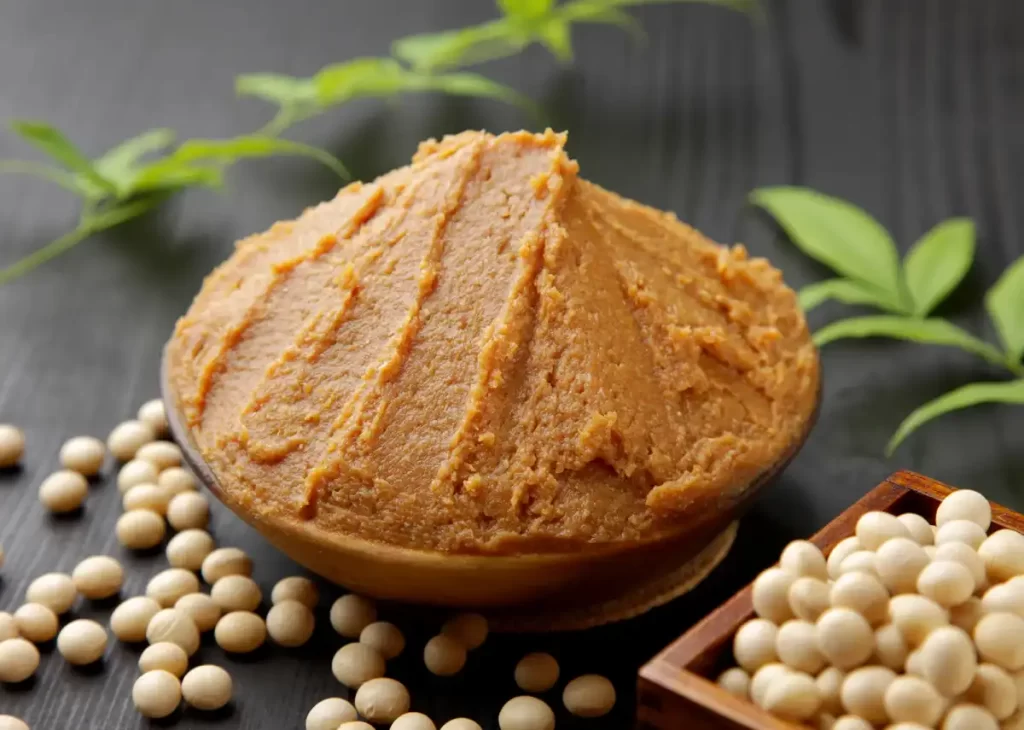
You may be hesitant to try miso, but it’s a great way to introduce healthy bacteria back into your gut after taking antibiotics. Miso is a fermented soybean paste that has been used in Japanese cuisine for centuries.
It contains beneficial bacteria called probiotics that can help restore the balance of your gut microbiome. Miso is also rich in vitamins and minerals like vitamin K, manganese, and copper. These nutrients can support overall gut health and improve digestion.
Plus, miso is versatile and can be added to soups, marinades, dressings, or even spread on toast for a tasty snack. Give it a try as part of your post-antibiotic recovery plan!
▶️ AD: Marukome Miso Gluten Free Vegan, 13.2 Ounce
2. Sauerkraut
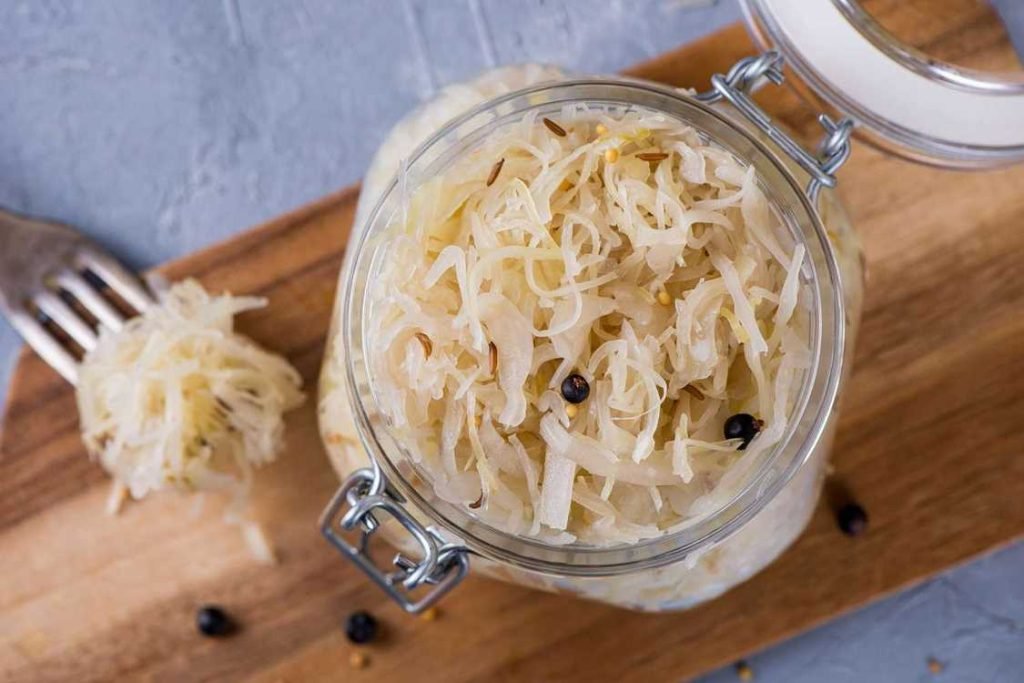
Sauerkraut, the tangy and crunchy fermented cabbage dish, is not only a popular condiment but also a great source of probiotics that can aid in restoring your gut health after taking antibiotics. The fermentation process creates lactic acid bacteria, including strains like Lactobacillus plantarum and Leuconostoc mesenteroides, which help to replenish and diversify the good bacteria in your gut.
Here are some benefits of adding sauerkraut to your diet:
- Supports immune function: Sauerkraut contains high levels of vitamin C, which can boost immune function and reduce inflammation.
- Aids digestion: The probiotics in sauerkraut can improve digestive function by breaking down food more efficiently and reducing bloating.
- Promotes weight loss: Some studies have shown that consuming fermented foods like sauerkraut may help with weight loss by improving insulin sensitivity and reducing inflammation.
- Lowers risk of chronic diseases: The beneficial bacteria in sauerkraut have been linked to improved heart health, reduced risk of cancer, and better mental health outcomes.
- Easy to add to meals: Sauerkraut is versatile enough to be added to salads, sandwiches, or eaten as a side dish.
Overall, incorporating sauerkraut into your diet after taking antibiotics is an excellent way to restore the balance of good bacteria in your gut. Try adding it to meals regularly for optimal gut health benefits.
🛒 Recommended Product: Bubbies Sauerkraut, 25 Fl Oz (Pack of 2)
3. Kombucha
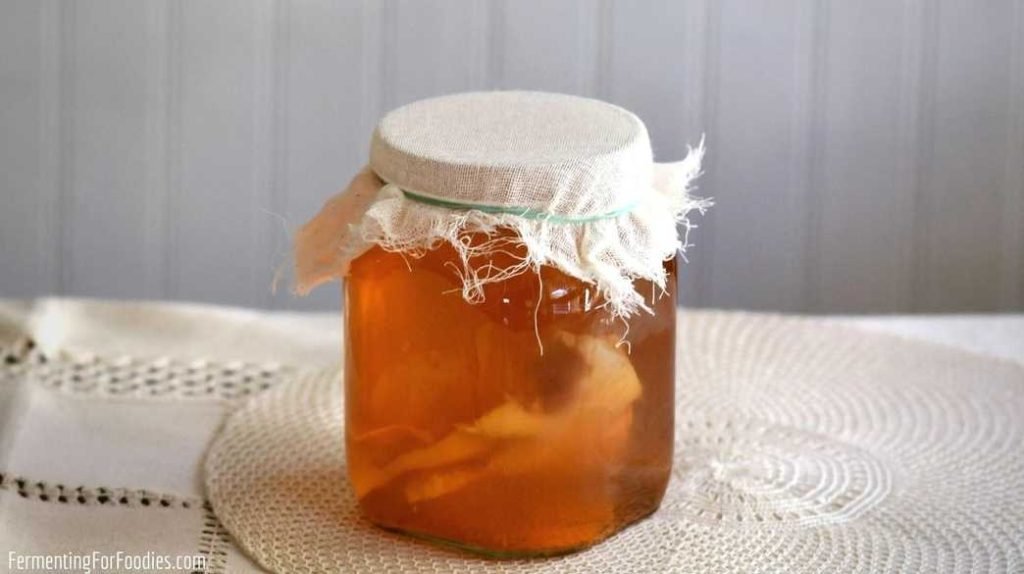
Now that you’ve learned about the benefits of sauerkraut for gut health after a course of antibiotics, it’s time to explore another fermented food: kombucha.
Kombucha is a tangy, effervescent drink made from tea and sugar that’s been fermented with yeast and bacteria cultures. It’s been gaining popularity in recent years due to its reported health benefits, including aiding digestion and improving gut health.
Kombucha contains probiotics that can help replenish the good bacteria in your gut after a course of antibiotics. These probiotics include lactic acid bacteria and acetic acid bacteria, which can help restore balance to your microbiome.
Additionally, kombucha may contain other beneficial compounds such as antioxidants and polyphenols, which have anti-inflammatory properties that can support overall digestive health.
When choosing a kombucha brand, look for one that’s low in sugar and free from artificial sweeteners or preservatives. Incorporating this tasty beverage into your diet can be a fun way to promote gut health while enjoying a refreshing drink.
4. Kimchi
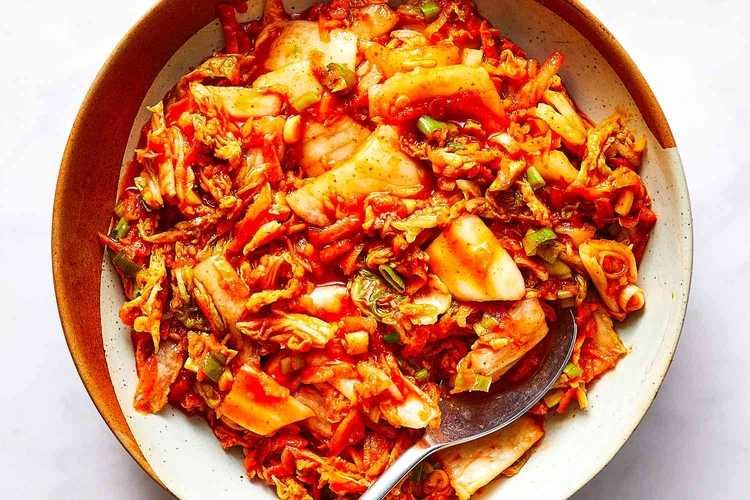
If you’re tired of boring old salads and want to spice up your gut health routine, let’s talk about kimchi – the spicy, fermented Korean dish that packs a punch of flavor and probiotics.
Kimchi is made by fermenting cabbage with salt, garlic, ginger, and chili peppers. The fermentation process allows for the growth of beneficial bacteria called Lactobacillus, which can help to restore the balance of your gut microbiome after a round of antibiotics.
Here are three reasons why you should consider adding kimchi to your diet:
- It contains probiotics: As mentioned earlier, kimchi is full of good bacteria that can support digestive health. These probiotics have been shown to improve immune function and reduce inflammation in the body.
- It’s low in calories: Kimchi is a great way to add flavor to your meals without increasing your calorie intake. One serving typically contains only around 10-20 calories.
- It’s versatile: Kimchi can be used in a variety of ways – as a side dish, topping for rice bowls or tacos, or even incorporated into soups or stews.
So if you’re looking for a tasty way to boost your gut health post-antibiotics, give kimchi a try!
5. Kefir
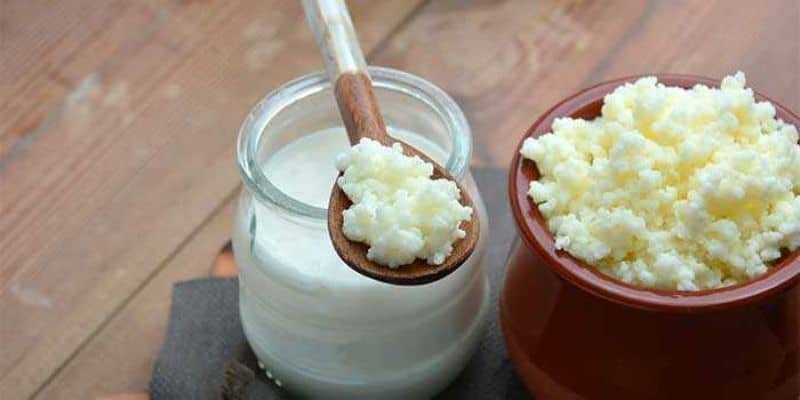
One way to support the restoration of your gut microbiome is by incorporating kefir into your diet. Kefir is a fermented milk drink that originated in the Caucasus Mountains and has been consumed for centuries. It’s made by adding kefir grains, which are a combination of yeast and bacteria cultures, to milk.
Kefir has been shown to improve digestive symptoms such as bloating, gas, and constipation. Studies have also found that consuming kefir can increase the diversity of gut bacteria and reduce inflammation in the gut. Additionally, kefir may have immune-boosting properties due to its high content of probiotics.
If you’re looking to restore your gut health after taking antibiotics, consider adding kefir to your diet as part of an overall approach that includes eating a balanced diet rich in fiber and prebiotics.
6. Whole grains (porridge, whole grain bread, brown rice)
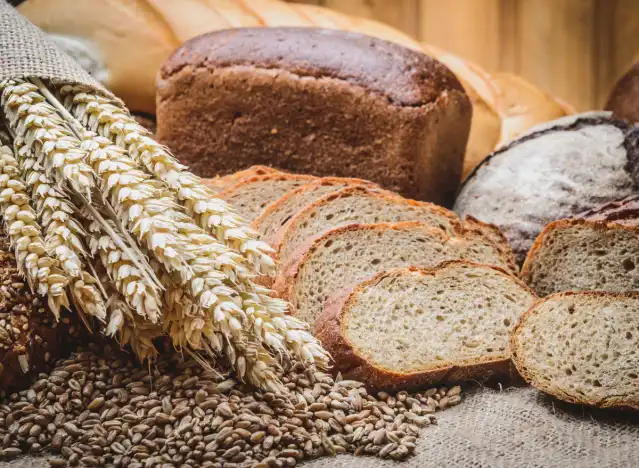
You can easily incorporate whole grains like porridge, whole grain bread, and brown rice into your diet to help improve your gut health after taking antibiotics.
Whole grains are an excellent source of fiber that nourishes the good bacteria in your gut, supporting their growth and diversity. They also promote regular bowel movements, preventing constipation and reducing the risk of inflammation in the gut.
Porridge is a great option for breakfast as it’s a warm, comforting meal that can be customized with different toppings like fruit or nuts. Whole grain bread can be used for sandwiches or as a side for soups or stews.
Brown rice is an ideal base for stir-fries or served alongside grilled vegetables and protein sources like chicken or fish. By incorporating these delicious whole grains into your meals, you can help restore balance to your gut microbiome while enjoying satisfying and nutritious dishes.
7. Nuts
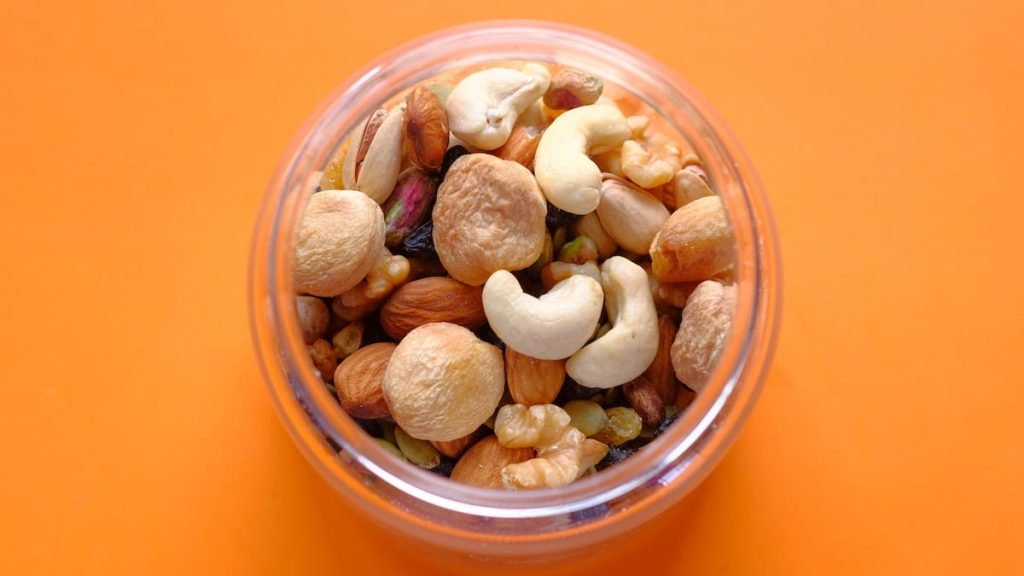
Craving a crunchy snack? Nuts are a great option for adding some variety to your diet while also providing beneficial nutrients and healthy fats for your gut. After taking antibiotics, incorporating nuts into your diet can help replenish the good bacteria in your gut microbiome. Not only do nuts contain fiber that feeds the probiotics in your gut, but they are also rich in antioxidants that reduce inflammation and improve digestion.
In fact, a study published in the Journal of Nutrition found that consuming almonds daily increased levels of beneficial Bifidobacteria and Lactobacillus in the gut. Additionally, another study found that eating walnuts increased levels of Akkermansia muciniphila, a type of bacteria associated with reduced inflammation and improved metabolic health. So next time you’re looking for a snack, reach for some nuts like almonds or walnuts to support your gut health after taking antibiotics.
| Type of Nut | Benefits |
|---|---|
| 1. Almonds | Richest source of Vitamin E; high fiber content aids digestion |
| 2. Walnuts | High in omega-3 fatty acids which reduce inflammation; boost metabolism |
| 3. Cashews | Rich source of zinc which boosts immunity; improves bone health |
| 4. Pistachios | Richest source of potassium; decreases blood pressure & cardiovascular risk factors. |
8. Seeds
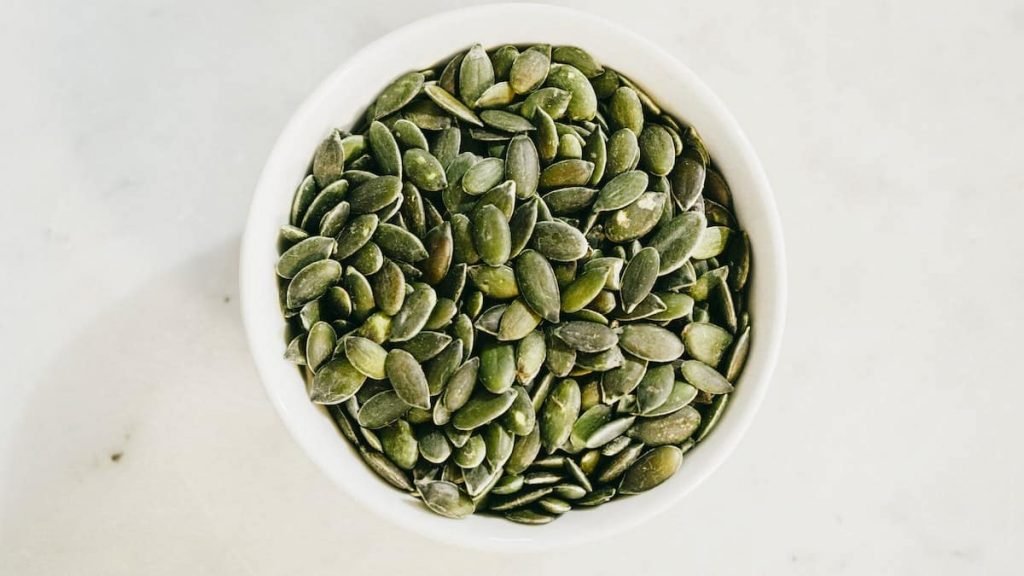
Incorporating seeds into your diet can be a beneficial way to support the restoration of your gut microbiome after taking antibiotics.
Seeds like chia, flax, pumpkin, and sunflower are high in fiber and healthy fats that nourish the good bacteria in your gut.
These types of seeds also contain phytochemicals that have prebiotic effects on the gut microbiome, promoting microbial diversity and reducing inflammation.
Chia seeds are particularly rich in fiber and omega-3 fatty acids, while pumpkin seeds contain zinc that supports immunity and wound healing.
Flaxseeds have lignans that act as antioxidants, fighting against harmful free radicals in the body. Sunflower seeds are high in vitamin E that helps protect cell membranes from damage.
You can sprinkle these seeds onto oatmeal or yogurt for breakfast or add them to salads for lunch or dinner. Incorporating a variety of seeds into your meals is a simple way to provide your gut with essential nutrients it needs to heal after antibiotic treatment.
9. Beans
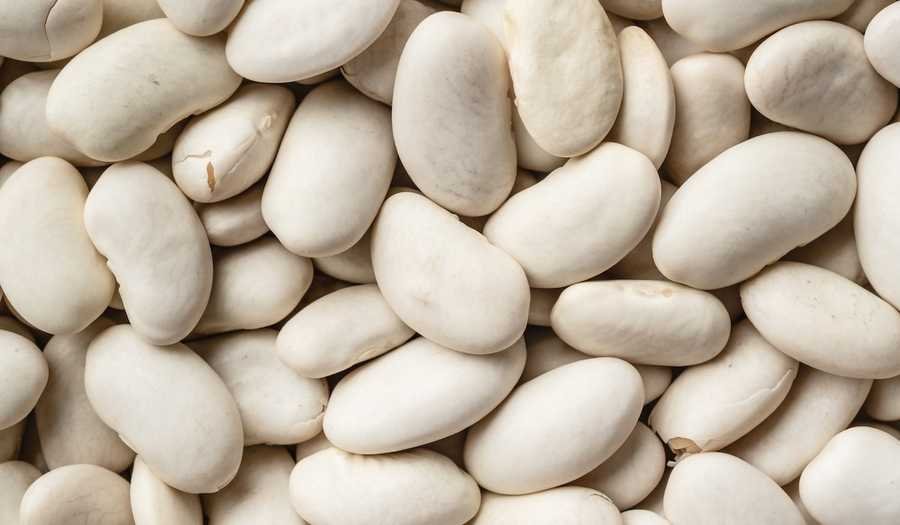
Beans are like little powerhouses of nutrition, providing a variety of essential vitamins and minerals that can help restore balance to your gut microbiome after taking antibiotics.
They’re high in fiber, which acts as fuel for the good bacteria in your gut. This means that eating beans can help promote the growth of beneficial bacteria and improve overall digestive health.
In addition to being a great source of fiber, beans also contain important nutrients like protein, iron, and magnesium. These nutrients not only support healthy digestion but also play crucial roles in other bodily functions such as energy production and immune system function.
So next time you’re looking to add some diversity to your diet after taking antibiotics, consider incorporating some delicious legumes like black beans, kidney beans, or garbanzo beans into your meals.
10. Lentils
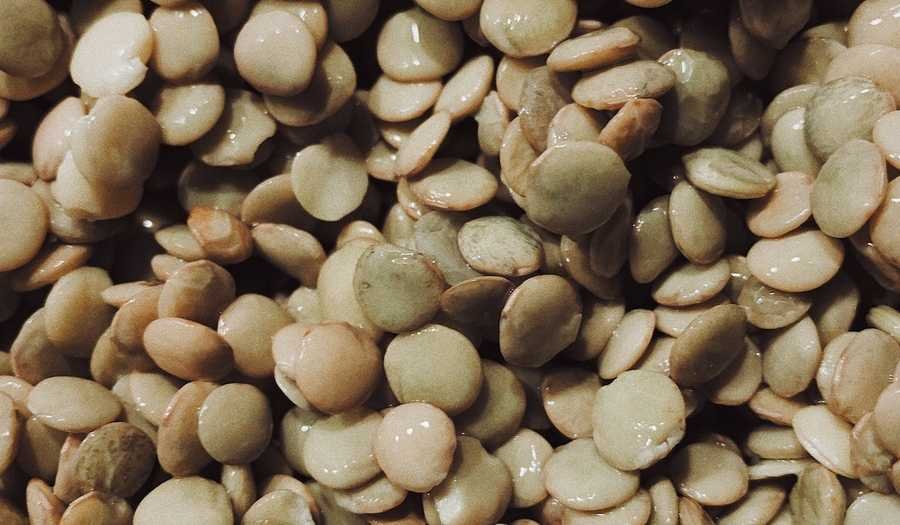
Lentils are an excellent source of plant-based protein and fiber, making them a nutritious addition to your diet after taking antibiotics.
They also contain prebiotics, which are non-digestible food components that help stimulate the growth of beneficial gut bacteria. Lentils are easy to incorporate into your meals as they can be added to soups, stews, salads, and even pasta dishes.
Here is a table highlighting the nutritional value of one cup (198 g) of cooked lentils:
| Nutrient | Amount |
|---|---|
| Calories | 230 |
| Protein | 18 g |
| Fiber | 16 g |
| Carbohydrates | 40 g |
| Iron | 6.6 mg |
Lentils also contain other important vitamins and minerals such as folate, potassium, and magnesium. Including lentils in your post-antibiotic diet can help restore healthy gut bacteria while providing necessary nutrients for overall health.
11. Berries
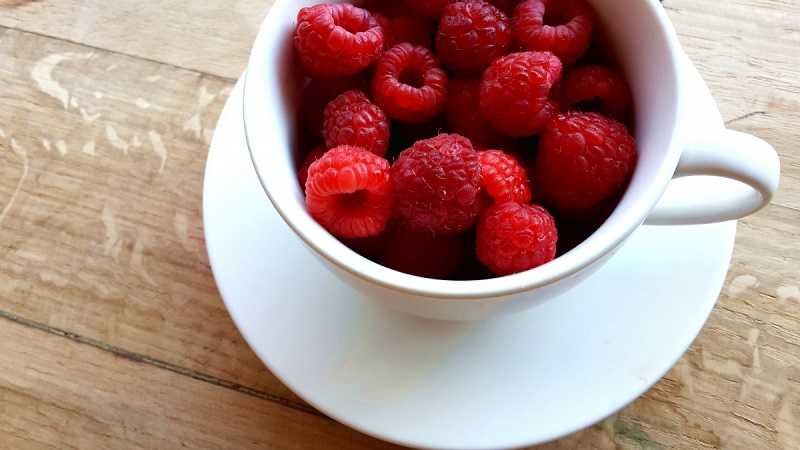
You’ll be happy to know that adding a variety of berries to your diet can have numerous benefits for your gut health, including providing prebiotic fiber and antioxidant polyphenols. Here are some reasons why you should consider adding more berries to your post-antibiotic diet:
- Berries contain high levels of polyphenols, which have been shown to have prebiotic effects on the gut microbiota.
- Blueberries and raspberries specifically have been found to increase levels of beneficial bacteria such as Bifidobacterium and Lactobacillus.
- Berries are also rich in dietary fiber, which feeds good bacteria in the gut and helps regulate bowel movements.
- The antioxidants in berries may also help reduce inflammation in the gut, promoting overall digestive health.
So next time you’re looking for a sweet snack after finishing a course of antibiotics, reach for some fresh berries or add them to your yogurt or smoothie bowl for an extra boost of gut-friendly nutrition.
12. Broccoli

Now that you know about the benefits of berries for your gut after antibiotics, let’s talk about broccoli.
This cruciferous vegetable is a great source of prebiotics, which are foods that feed the good bacteria in your gut.
Prebiotic foods like broccoli can help restore the balance of your gut microbiota after taking antibiotics.
Broccoli contains a special type of prebiotic fiber called inulin, which has been shown to increase levels of beneficial Bifidobacteria in the gut.
In addition to its prebiotic properties, broccoli is also rich in antioxidants and anti-inflammatory compounds that support overall gut health.
So next time you’re looking for a healthy side dish, consider adding some steamed or roasted broccoli to your plate. Your gut will thank you!
13. Peas
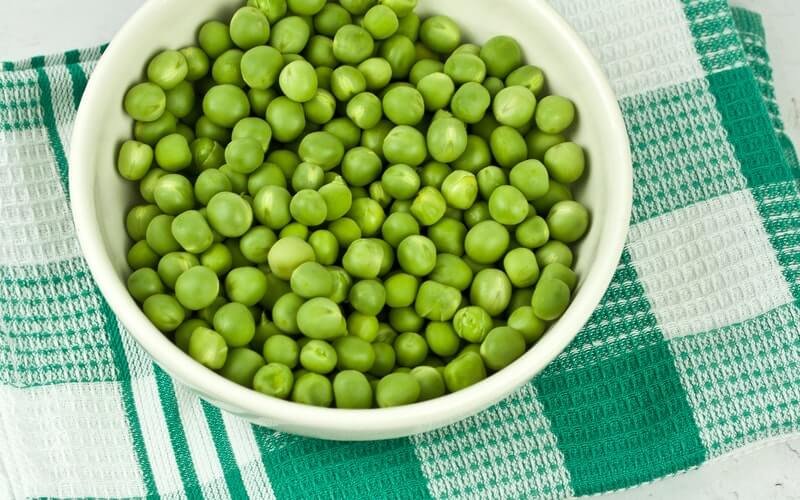
Just like a pod of peas contains many individual peas, our gut microbiome is made up of countless beneficial bacteria working together to support our overall health and well-being. After taking antibiotics, it’s important to replenish the good bacteria in our gut with foods that promote microbial diversity.
One such food is peas, which are rich in prebiotic fiber that feeds the healthy bacteria in our gut. Here are three ways peas can benefit your gut health after antibiotics:
- Promotes bacterial growth: Peas contain fructooligosaccharides (FOS), a type of prebiotic fiber that promotes the growth of Bifidobacteria and Lactobacillus, two strains of beneficial gut bacteria.
- Reduces inflammation: Peas also have anti-inflammatory properties due to their high content of polyphenols and flavonoids, which can help reduce inflammation in the gut caused by antibiotic use.
- Improves digestion: The fiber in peas helps regulate bowel movements and improve digestion, reducing symptoms like diarrhea or constipation that may occur after taking antibiotics.
14. Bananas

Bananas are a great source of prebiotic fiber that can promote the growth of beneficial gut bacteria and aid in digestion, making them a helpful addition to your post-antibiotic diet.
The high levels of resistant starch found in bananas act as food for good gut bacteria, such as Bifidobacteria, which can help restore the balance of your gut microbiome after taking antibiotics.
Additionally, bananas contain potassium and magnesium, which can help regulate bowel movements and reduce inflammation in the gut.
When incorporating bananas into your post-antibiotic diet, it’s important to choose ripe ones that are easy to digest.
You can eat them as a snack or add them to smoothies or oatmeal for an extra boost of prebiotic fiber.
However, if you have difficulty digesting bananas due to their natural sugar content, try pairing them with protein or fat sources such as nuts or nut butter to slow down the absorption of sugar into your bloodstream.
Overall, adding bananas to your diet is a simple yet effective way to promote optimal gut health after taking antibiotics.
15. Artichokes
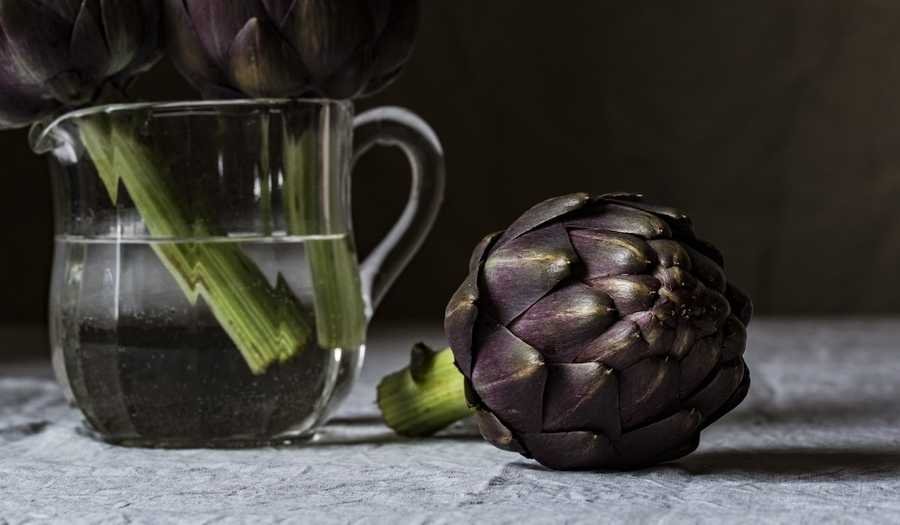
Incorporating artichokes into your meals can help support a healthy gut and improve digestion, leaving you feeling energized and satisfied. Artichokes are rich in inulin, a type of prebiotic fiber that feeds the beneficial bacteria in your gut.
In fact, one medium-sized artichoke contains about 5 grams of inulin, which is more than 20% of the recommended daily intake for adults.
Research has shown that consuming prebiotic foods like artichokes on a regular basis can lead to an increase in beneficial bacteria like Bifidobacteria and Lactobacilli.
These good bacteria help maintain a healthy gut environment by preventing harmful microorganisms from taking over and causing issues like inflammation and digestive problems.
Additionally, artichokes contain antioxidants, which can reduce oxidative stress and inflammation throughout the body.
By adding this delicious vegetable to your diet after taking antibiotics, you can help restore balance to your gut microbiome and promote overall health.
16. Red Wine

Drinking red wine in moderation can have beneficial prebiotic effects on the gut microbiota. It contains antioxidant polyphenols that support the growth of healthy bacteria and may promote overall gut health.
The polyphenols found in red wine are known to increase the diversity of gut bacteria, which is essential for good health. [6] [7]
Additionally, these compounds also have anti-inflammatory properties that can help reduce inflammation in the gut.
However, it’s important to remember that alcohol should be consumed in moderation. Excessive alcohol consumption can lead to a range of negative health consequences, including liver damage and an increased risk of certain cancers.
To maintain good health, it’s recommended that men consume no more than two drinks per day and women consume no more than one drink per day.
Related: Is There A Safe Level Of Alcohol Consumption?
So if you’re looking for a way to support your gut microbiota after taking antibiotics, enjoying a glass of red wine with dinner might be just what the doctor ordered. Just remember to keep it moderate!
Trans-Reseratrol Powder, 5 Ounces
- Pure Trans Resveratrol Powder with Immune Natural Vitamin E (D-Alpha Tocopherol) from Micro Ingredients.
- 5 Ounce, (Resveratrol 500mg Per Serving), 2 in 1 Formula for Super Antioxidant, Micronized Powder for Better Absorption, Vegan Friendly.*
- Non-GMO, No Gluten, No Soy, No Tree Nuts, No Artificial Colors, No Flavors and No Irradiation.
⭐⭐⭐⭐⭐ | 4.6 (535 reviews)
17. Cocoa
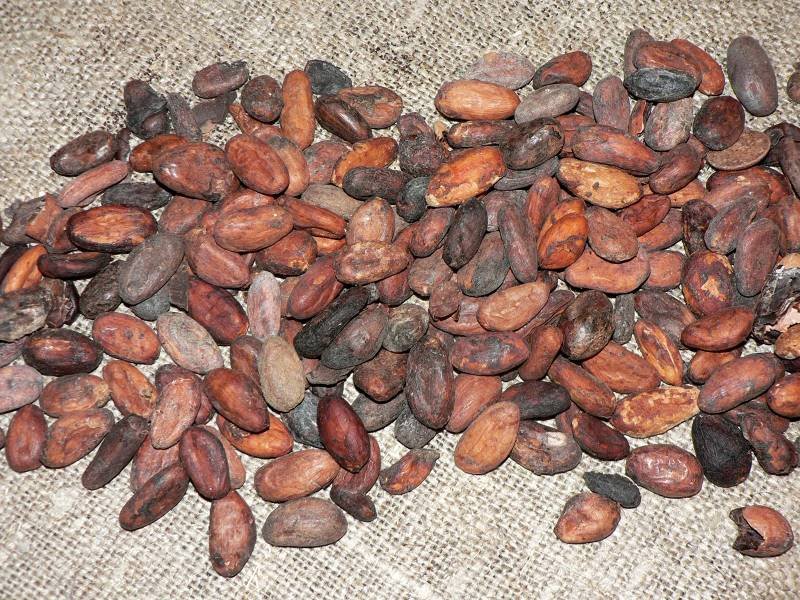
Indulging in a piece of dark chocolate can not only satisfy your sweet tooth, but also provide prebiotic benefits to support the growth of healthy gut bacteria.
Cocoa contains antioxidant polyphenols that have beneficial prebiotic effects on the gut microbiota.
These compounds help stimulate the growth of beneficial gut bacteria, such as Bifidobacteria and Lactobacilli, while suppressing harmful ones.
18. Soups, Broths
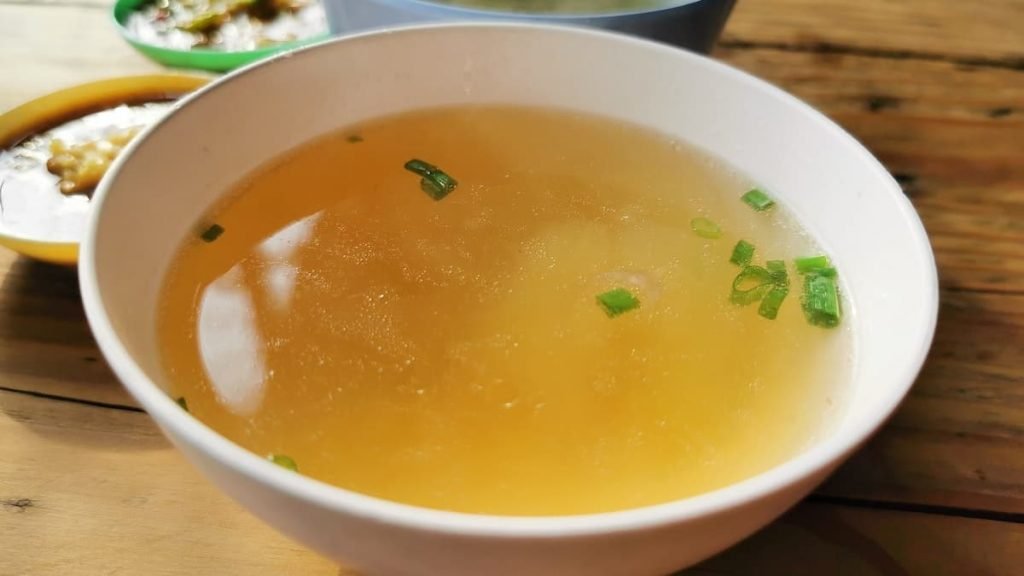
Now that you know about the prebiotic effects of red wine and cocoa on your gut microbiota, it’s time to consider soups and broths for restoring your gut health after taking antibiotics.
These warm and comforting liquids are easy on the digestive system, rich in nutrients, and excellent sources of hydration. They can also help alleviate constipation caused by antibiotic use.
Soups and broths contain minerals like calcium, magnesium, potassium, sodium, and phosphorus that are essential for maintaining a healthy balance of electrolytes in your body.
Additionally, they provide vitamins like vitamin A, C, K, B-complex vitamins (including folate), as well as antioxidants like polyphenols and flavonoids that have anti-inflammatory properties.
To give you an idea of their nutritional value, here is a table comparing the nutrient content of different types of soups and broths:
| Type of Soup/Broth | Nutrient Content | Benefits |
|---|---|---|
| Chicken broth | Protein | Aids digestion |
| Calcium | Strengthens bones | |
| Magnesium | Regulates blood sugar levels | |
| Vegetable soup | Fiber | Promotes bowel regularity |
| Vitamin C | Boosts immune function | |
| Iron | Prevents anemia | |
| Beef bone broth | Collagen | Supports joint health |
| Glycine | Enhances sleep quality | |
| Glutamine | Repairs intestinal lining |
By incorporating soups and broths into your diet regularly after taking antibiotics (and even when you’re not), you can support a healthy gut microbiome while getting all the vital nutrients your body needs to thrive.
19. Probiotic supplements
Probiotic supplements can be a powerful tool for promoting gut health and restoring the microbiome after antibiotic use.
These supplements contain live microorganisms that can help replenish and balance the good bacteria in your gut. They are available in various forms, including capsules, powders, and liquids.
Some of the most commonly used probiotic strains include Lactobacillus acidophilus, Bifidobacterium bifidum, and Saccharomyces boulardii.
Research has shown that these probiotics may help prevent and alleviate antibiotic-associated diarrhea, as well as improve symptoms of irritable bowel syndrome (IBS) and inflammatory bowel disease (IBD).
However, it’s important to note that not all probiotic supplements are created equal, so it’s essential to choose a high-quality product from a reputable brand. It’s also important to talk to your healthcare provider before starting any new supplement regimen.
20. Water

To maintain a healthy gut microbiome, you should make sure to drink plenty of water each day. Water is essential for maintaining the proper balance of bacteria in your gut and preventing dehydration, which can lead to digestive issues.
It also helps to flush out toxins and waste products from your body, promoting overall health.
In addition to drinking plain water, you can also add some flavor and extra benefits by infusing it with fruits or herbs.
For example, lemon or lime slices can provide a boost of vitamin C and aid digestion, while ginger can soothe inflammation in the gut. Check out the table below for some ideas on how to spice up your water routine:
| Flavor | Benefits |
|---|---|
| Lemon/Lime | Vitamin C, digestion aid |
| Cucumber | Hydration boost |
| Mint | Soothes stomach discomfort |
| Ginger | Anti-inflammatory properties |
Remember that staying hydrated is important not only during antibiotic treatment but also as part of a healthy lifestyle for optimal gut health.
Aim for at least 8 glasses (64 ounces) per day and experiment with different flavors to keep things interesting and refreshing.
Related: This Is What Happens If You Drink Only Water
Foods To Avoid
When taking antibiotics, it’s important to be mindful of certain foods that can interact with the medication and potentially reduce its effectiveness.
Citrus fruits like grapefruit, orange, and lemon can decrease how much medicine is absorbed into your system for certain antibiotics.
Calcium fortified foods and dairy products can also interfere with antibiotics, while alcohol should be completely abstained from until 48 hours after completing a course of metronidazole.
Additionally, high acid foods like soda could also decrease absorption of some antibiotics.
Citrus fruits Grapefruit, Orange, Lemon
If you’re taking antibiotics, be careful with citrus fruits like grapefruit, orange, and lemon because they can decrease how much medicine is absorbed into your system for certain antibiotics.
This means that the medication may not work as well as it should, potentially prolonging your illness or causing it to worsen.
It’s best to avoid consuming these fruits while on antibiotics, or at least wait a few hours after taking your medication before eating them.
It’s important to note that up to 69 percent of kids are exposed to antibiotics before age 2, which raises their obesity risk. [8]
Therefore, it’s crucial to take care of our gut health by avoiding foods that could interfere with the effectiveness of our medications and instead choosing foods that promote healthy gut bacteria growth.
After finishing your course of antibiotics, consider incorporating probiotic-rich foods such as yogurt and fermented vegetables into your diet to help replenish good bacteria in your gut.
Calcium Fortified foods
Consuming calcium-fortified foods while taking antibiotics may interfere with the medication’s absorption and effectiveness, so it’s important to be mindful of this potential interaction.
Calcium binds to certain antibiotics like tetracyclines or fluoroquinolones, reducing their ability to enter the bloodstream and fight off infections. This can lead to antibiotic resistance and prolong illness.
To avoid this issue, try to limit your intake of calcium-rich foods like dairy products, leafy greens, and tofu while on antibiotics. You can also take your medication a few hours before or after consuming these fortified foods.
Dairy
You may want to reconsider your love for dairy products while on antibiotics as they can interfere with the medication’s ability to fight off infections, potentially leading to antibiotic resistance.
Dairy and calcium-rich foods can bind to antibiotics like tetracyclines or fluoroquinolones, reducing their effectiveness in treating bacterial infections. [9]
This is because calcium ions in dairy products can form complexes with these antibiotics in the gut, making them less available for absorption into the bloodstream.
It’s best to avoid consuming dairy products at least two hours before and after taking these types of antibiotics to ensure maximum absorption of medication.
If you must consume dairy, it’s recommended that you opt for low-calcium options like cream cheese or butter instead of high-calcium options like milk or cheese.
Remember, proper use of antibiotics is crucial in preventing antibiotic resistance, so it’s important not only to take them as prescribed but also to avoid any potential interactions with other substances like dairy products.
Alcohol
Drinking alcohol while taking certain antibiotics, such as metronidazole, can cause severe side effects and should be avoided until at least 48 hours after completing the course of medication.
Alcohol can interfere with the metabolism of antibiotics in your liver and make it harder for your body to break down the medication properly. This can increase the risk of side effects like nausea, vomiting, headaches, dizziness, and abdominal pain.
It’s important to note that not all antibiotics interact with alcohol. However, it’s best to err on the side of caution and avoid drinking alcohol until you have completed the full course of antibiotics.
If you do choose to drink alcohol while taking antibiotics that don’t interact negatively with it, do so in moderation and avoid excessive consumption. Remember that staying hydrated is crucial while on antibiotics, so be sure to drink plenty of water instead.
Soda
Soda lovers, did you know that high acid beverages like soda could decrease the absorption of certain antibiotics?
That’s right, consuming soda while on antibiotics can actually hinder how much medication is absorbed into your system. This could potentially prolong the healing process and make it harder for your body to fight off infections.
In addition to this, drinking soda can also intensify side effects like gastrointestinal upset. So if you’re on antibiotics, it’s best to avoid high acid beverages like soda altogether.
Instead, opt for water or herbal tea to stay hydrated while taking your medication. Remember, what you eat and drink while on antibiotics can impact how well it works and whether you’ll feel better.
Common antibiotic side effects
Feeling sick after taking antibiotics is common, and side effects like diarrhea, gas, and constipation can make recovery even more difficult.
It’s important to understand the potential consequences of antibiotic use on your gut health, as they can kill both good and bad bacteria in your gut.
This imbalance can lead to a variety of negative side effects that may make you feel worse before you start feeling better. To mitigate these side effects, it’s important to stay hydrated and eat a healthy diet that includes prebiotic plant foods like fruits, vegetables, whole grains, nuts, seeds, and beans – like the ones we mentioned above.
Probiotics can also help replenish beneficial bacteria in your gut and prevent diarrhea. However, it’s essential to talk with your healthcare provider before taking any supplements or making any dietary changes while on antibiotics.
Remember that everyone’s microbiome is unique and may respond differently to various interventions.
By staying informed about the best foods for your gut after antibiotics and working with a healthcare professional to develop an individualized plan for restoring gut health, you can minimize the negative impacts of antibiotic use on your digestive system.
How to Take Antibiotics Properly
To ensure the effectiveness of your antibiotics, it’s crucial that you take them properly by following the instructions on the medication label and finishing the entire regimen.
Skipping doses or stopping early can lead to antibiotic resistance, which means future infections may be more difficult to treat.
If you miss a dose, take it as soon as you remember unless it’s almost time for your next dose.
If you miss all of your doses in a 24-hour period, call your provider.
It’s also important to pay attention to how you take your antibiotics.
Some medications should be taken with food while others should be taken on an empty stomach.
Make sure to follow these instructions carefully and avoid any foods or drinks that could interfere with absorption or intensify side effects.
Drinking alcohol should be completely abstained from until 48 hours after completing a course of antibiotics if taking metronidazole.
Staying hydrated is also important when sick and taking antibiotics.
And consider taking probiotics while on antibiotics to help provide beneficial bacteria to your system and may also help with diarrhea caused by the medication.
Frequently Asked Questions
Conclusion
Congratulations on finishing the article! Now that you know the best foods for your gut after antibiotics, it’s time to put this knowledge into practice.
Incorporate probiotics like yogurt and kefir, fermented foods like kimchi and sauerkraut, high-fiber foods like fruits and vegetables, and prebiotic foods like garlic and onion into your diet. Remember that restoring your gut microbiota is an essential step in maintaining good health.
A healthy gut can improve digestion, boost immunity, and even contribute to weight loss. So don’t neglect the importance of taking care of your gut!
For example, a woman who developed diarrhea after taking antibiotics tried incorporating probiotic-rich foods into her diet. She noticed a significant improvement in her symptoms within a few days and was able to restore her gut health without any further complications.
By making small changes to your diet and prioritizing gut health, you too can see positive results in your overall well-being.
READ ALSO



